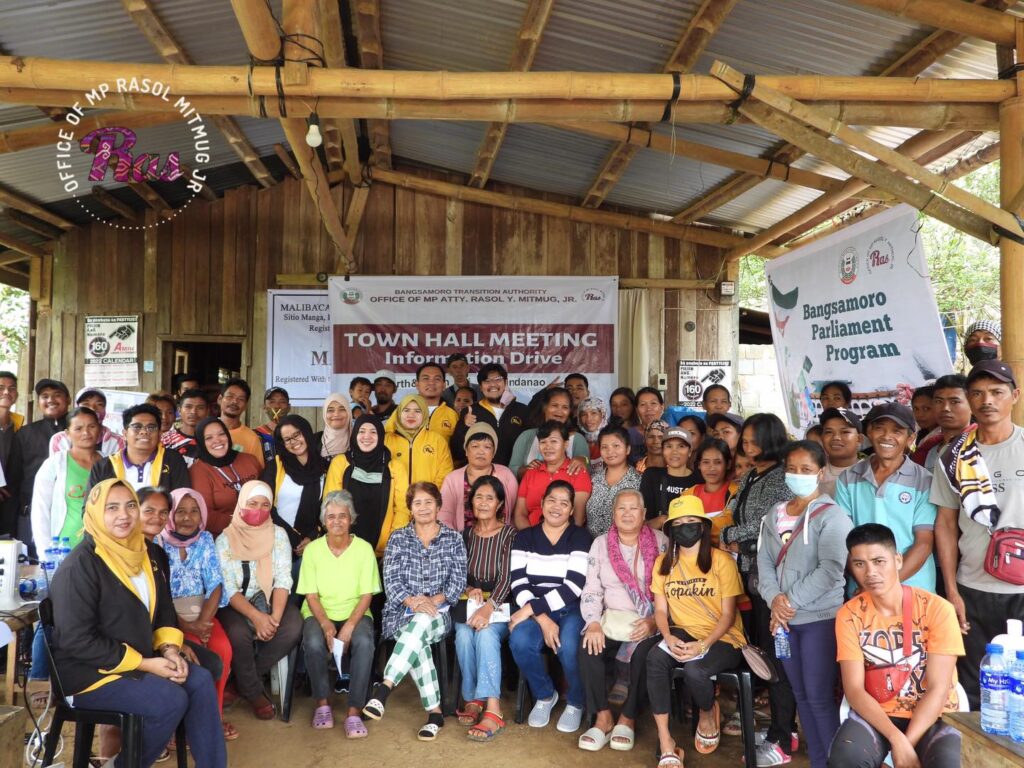
IP month sa South Upi kasama ang Team Ras


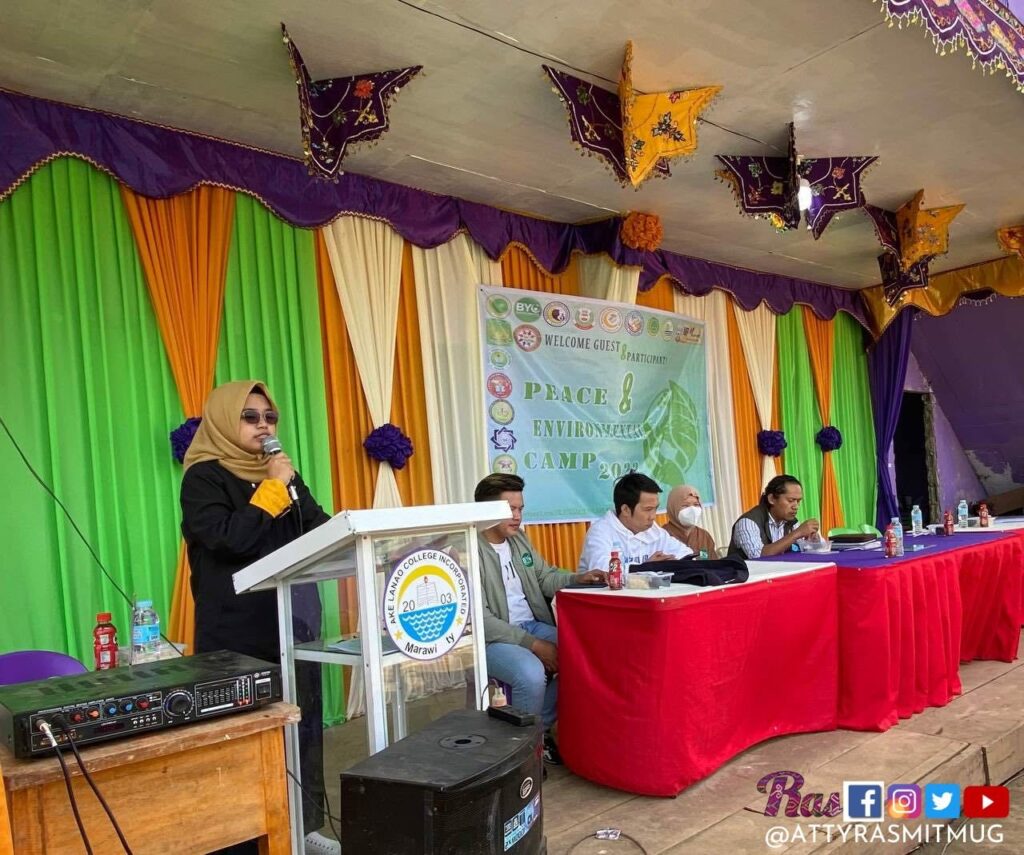
Magkasabay na isinagawa ng opisina ni MP Rasol Y. Mitmug, Jr. ang town hall meetings na naglalayon na magbigay impormasyon sa mga tao tungkol sa mga mahahalaga at basic na kaalaman kaugnay sa Bangsamoro government.
Ginanap ang naturang town hall meetings sa Barangay Bagua II sa Cotabato City at Marawi City noong Setyembre 27, 2022. Naging tagapakinig sa Bagua II ang mga kababaihan, samantala, librarian, health workers, titsers, forester, kabataan, at ilang miyembro ng CSOs naman ang aktibong nakilahok sa aktibidad sa Marawi.
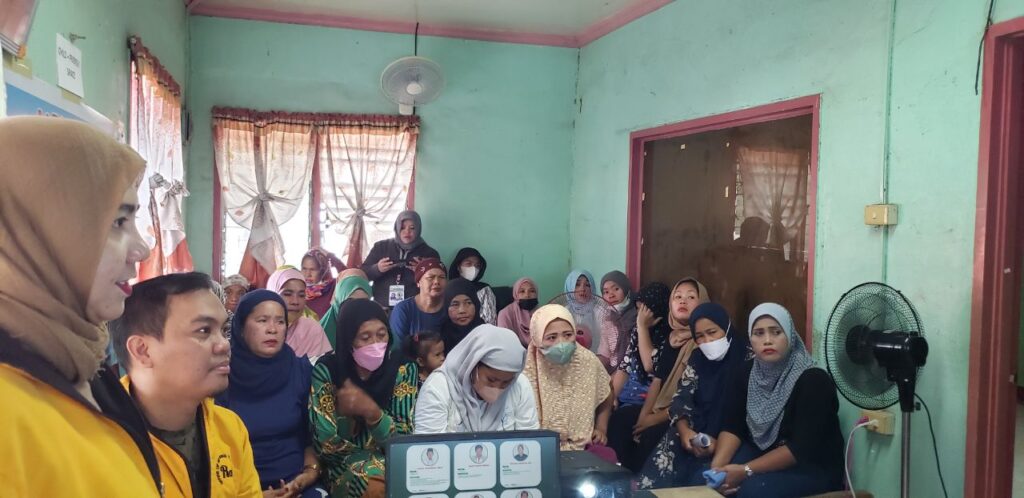 Kabilang sa tinalakay ng mga speakers ay ang mandato ng BTA at ang sistema nito. Ipinakilala rin ang mga bagong opisyales ng Bangsamoro government pati na rin ang mga bagong hirang na members of the parliament. Binigyang diin din sa diskurso ang ilan sa mga pangunahing polisiya ng gobyerno.
Kabilang sa tinalakay ng mga speakers ay ang mandato ng BTA at ang sistema nito. Ipinakilala rin ang mga bagong opisyales ng Bangsamoro government pati na rin ang mga bagong hirang na members of the parliament. Binigyang diin din sa diskurso ang ilan sa mga pangunahing polisiya ng gobyerno.
Isang importanteng usapin naman kaugnay sa mga oportunidad at polisiya para sa mga kababaihan ang tinalakay ni Sahara Ali na representante ng Bangsamoro Women Commission.
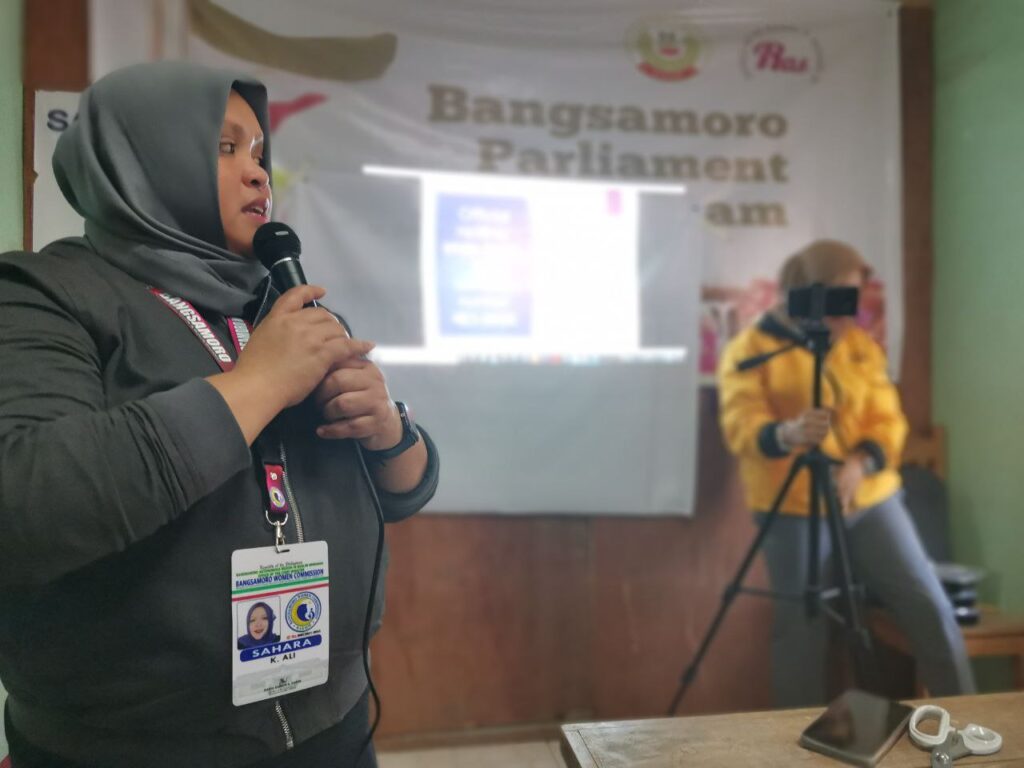
Sa Marawi naman ay naiparating ng mga participants na nais nilang magkaroon ng public libraries kada munisipyo, taunang BARMM job fair, pondo para sa mga madrasah at marami pang iba. Samantala, ilan sa mga naitanong sapagpupulong sa nasabing lugar ay ang youth unemployment, seguridad para sa mga MSU students, illegal boosters, waste disposal, at plano ng BARMM para sa mga IDPs.
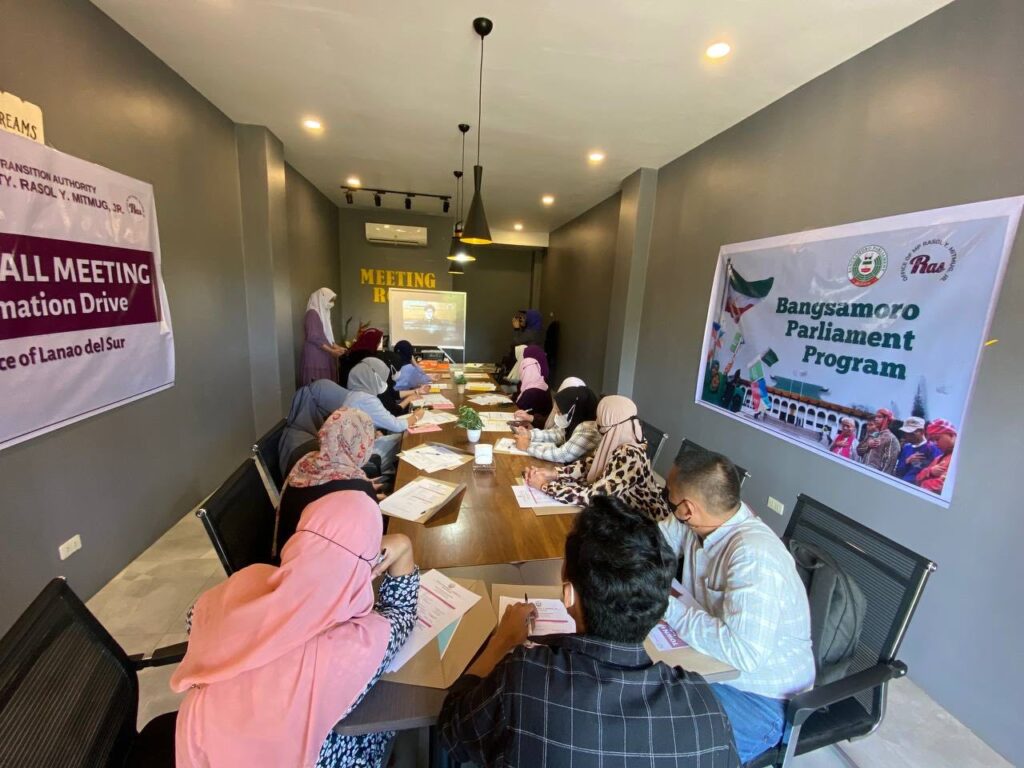
Pahayag ni Chief of Staff Amer Hussien Mitmug, “Itong ganitong klaseng pulong-pulong ay sinasagawa namin upang mabigyan ang mga kababayan natin ng sapat na impormasyon patungkol sa BARMM Government para sila ay magiging aktibong members of the community. Bilang aktibong miyembro ng kommunidad, tayo po ay magsisikap na iparating sa mga tamang ahensiya ang mga legitimate at napapanahong isyus para sa ikauunlad ng ating komunidad.”
Hangad ng opisina ni MP Mitmug na mas marami pang barangay ang mapupuntahan ng grupo para sa isinasagawang puspusan na information drive.
In his interview on the Teleradyo program, Bangsamoro Ngayong by UVPN and the Asia Foundation, MP Rasol Y. Mitmug, Jr. offered an insight on the hopeful direction and initial dynamics of the newly seated Bangsamoro Transition Authority. He began the interview by providing several facts on the how Parliamentary System works. MP Mitmug described the fascinating diversity of the new set of members of Parliament. This new and diversified BTA has ushered in a different set of relationships, perspectives, and groupings in terms of field of expertise and interests. He noted that interest groups and coalitions whose members share similar issues and concerns are logically and naturally formed in a parliament. Therefore, this presents opportunities to form coalitions and caucuses outside of legislative committees in line with the members’ advocacies and interests. He also expressed his personal belief that these interest groups and coalitions can better serve the parliament by installing floor leaders for said groups.

As the guest speaker of the said teleradyo program last Saturday, September 24, MP Mitmug defined the meaning of “Minority and majority blocs of the Bangsamoro Parliament”. However, he clarified that currently, there is no majority or minority bloc since the government is aiming for a one BTA acknowledging that all members are appointed by the President. The selection of the House Speaker traditionally prompts the delineation of the majority and minority bloc inside a parliament. This shift of dynamics has yet to be manifested as the new BTA has only just recently begun taking on its roles and responsibilities. In fact, it has unanimously voted Pangalian Balindong as House Speaker again.
MP Mitmug emphasized that the BTA is unique because while it is a parliament in form and function, it is not bound by bloc politics that essentially exists in parliaments. It may be true that opposition parties are essential to parliamentary democracy because they make the government accountable. However, this is not the case for the Transition Authority because as mentioned all the BTA members are appointees. Since it is not yet an official parliament composed of elected and party members, the BTA is not restricted by bloc politics. He clarified that the individual members of the parliament have three main responsibilities- representation, legislation and oversight function. Thus, it is up to the MPs to deliver the necessary check and balance within the parliament and the transition government.
He ended his interview by resonating the call for unity by the national government to the Bangsamoro people. While broad cooperation seems to be overarching motto of the new BTA, Mitmug pointed out in this interview that in reality, the interests and advocacies of the members do vary. He appealed that they to do their part in helping the Bangsamoro Government as a peacebuilding infrastructure to succeed. He stated that conflicting ideas and clashing interests may be part of the policy-making process, but the rule of law must prevail. He connected this by explaining that to achieve peace, fundamental principles of justice and rule of law should be upheld. This newfound synergy of the new BTA is vital to meet the challenge of completing the remaining mandatory legislations under the BOL within the next three years.